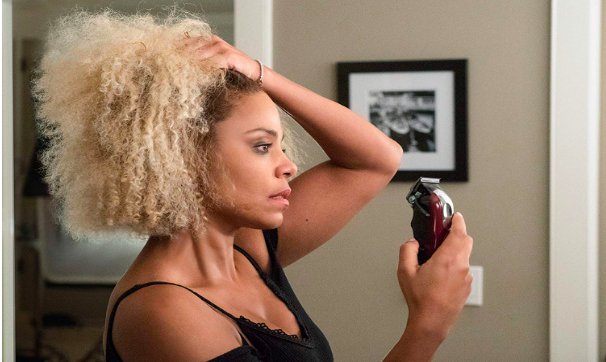
Netflix kicked conventional beauty standards to the curb with their newest original romantic comedy, Nappily Ever After.
Nappily Ever After, starring Sanaa Lathan, follows the breakthrough of Violet Jones, a successful, African-American woman who hits her limits after years of striving for physical perfection in regards to her hair. Saying goodbye to hot combs, flat-irons, and hour-long salon visits for good, Violet drunkenly takes a razor to her scalp.
The frontal clip in which Violet shaves her head is performed beautifully by Lathan, and carries the entire meaning of the film in one raw, emotional scene. With each lock that Violet shaves off, a little bit of weight from the pressure women face to look perfect is lifted from her shoulders. The moment is refreshing, symbolic, and inspiring to a female audience.
The genre of the film is a mix of elements from both a romantic comedy and a coming-of-age film. Violet’s growing relationship with a laid-back barber who accepts her as she is parallel to her growing relationship with herself. She not only learns how to be properly loved by a romantic partner, but how to properly be loved by herself.
The film touches on feminism in a diverse manner, enforcing representation by focusing on the beauty standards of African-American women. Natural beauty is thoroughly defined throughout the storyline, which preaches that it is okay for women to go out makeup-less, order a cheeseburger, or wear sneakers instead of heels.
Nappily Ever After truly portrays what it means to let your hair down.
